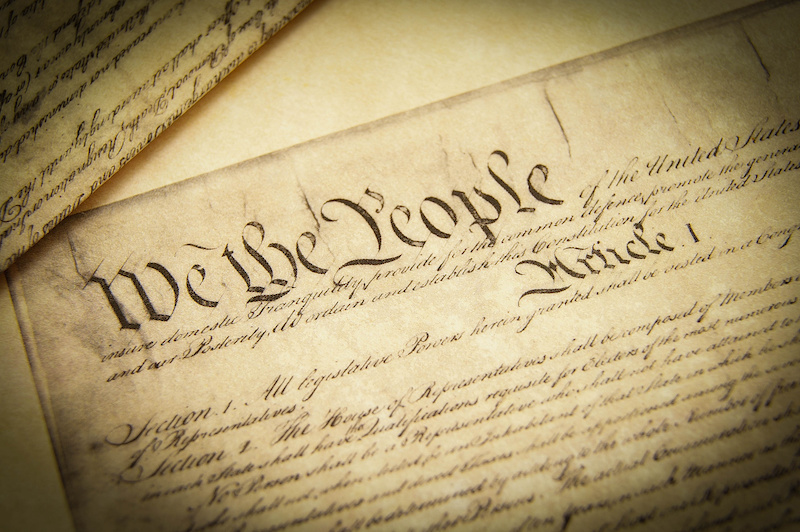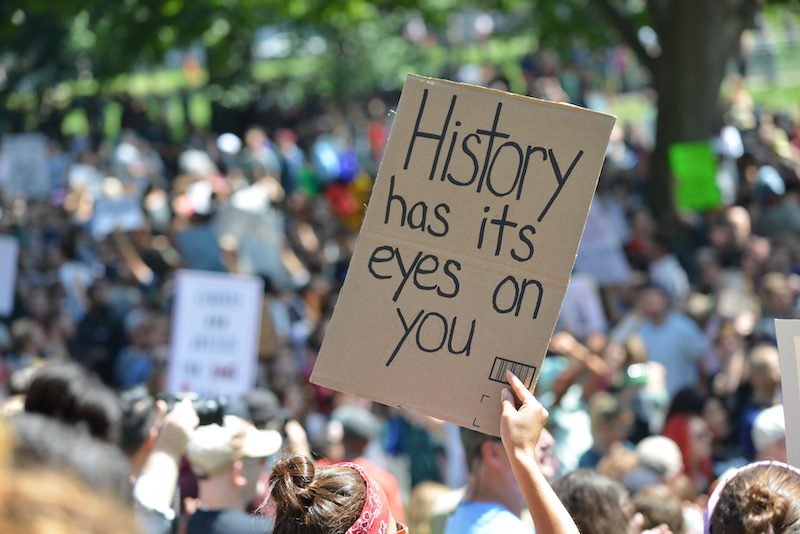The Aura of Legitimacy & Human Rights

There is a common misconception in organized society that anything done within the structure of society carries with it the aura of legality. For instance, the creation of laws (whether they are just or unjust) are imbued with a powerful physical and mental impact that there is an aura of legitimacy to this process.
I’m paraphrasing noted human rights attorney William Kunstler here, but his point is well-taken. Just because a recognized process was followed doesn’t mean the outcome was just. In fact, Kunstler points out many notable examples where the societal process and its aura of legitimacy has gone awry.
“The convictions of Plato… legal; Jesus… quite legal; six million Jews under the Third Reich… legal; the outright slaughter of Native Americans… legal; the hundreds of Black men hanged in the South… all legal.”
His point?
Throughout human history, the outward appearance of legitimacy has allowed dictators to eliminate millions of people under the guise of following a legal system that, as Kunstler says, “makes everyone feel that person has gotten everything due him under the aura of legitimacy.”
It is said that the only absolute is justice, but, as Kunstler also points out, “Often there is a great chasm between the law and actual justice.”
The challenge is that occasionally the law is itself justice’s opponent and, in some cases, the law can be the mortal enemy of justice. Consequently, it is imperative for us — as a society — to recognize those misalignments and attempt to bridge the chasm between law and justice.
The Fourteenth Amendment to the U.S. Constitution reads, “All persons born or naturalized in the United States, and subject to the jurisdiction thereof, are citizens of the United States and of the State wherein they reside. No State shall make or enforce any law which shall abridge the privileges or immunities of citizens of the United States; nor shall any State deprive any person of life, liberty, or property, without due process of law; nor deny to any person within its jurisdiction the equal protection of the laws.”
In other words, denying citizens the right to vote, to personal safety, or to privacy; to denying marriage of same-sex couples or protection to Black citizens under state laws, violates the Fourteenth Amendment.
By failing to uphold the Fourteenth Amendment and allowing a façade of laws and regulations to be implemented, the Rule of Law will effectively collapse into chaos, leaving American citizens vulnerable and unprotected from the arbitrary and capricious whims of a totalitarian government. Under such an autocracy, laws and regulations can be applied to give an aura of legitimacy, and the enforcement of these laws the impression of justice.
Inspect What you Expect

Americans like to use the phrase, “I know my rights!” But sadly, too many of us don’t really understand what rights are or are not. Actually knowing and understanding your rights (as well as the rights of others) can go a long way toward improved civility.
For instance, the First Amendment to the U.S. Constitution says everyone in the United States has the right to practice their religion, or no religion at all. America stands for and strives to allow the idea of religious pluralism. But many Americans are less than accepting of those practicing differing faiths. Unfortunately, hatred and bigotry still exist in the U.S. We are challenged daily to ensure people of all faiths can worship freely and express their beliefs without fear of persecution. Human rights should protect individuals, not simply promote lofty ideas.
“But, hey, it’s a free country; I can say what I want.”
Yes, but there are limits to constitutionally protected speech, and there are consequences for those who violate these limits. Hate speech intending to degrade, intimidate, and incite violence is illegal and punishable in the U.S. The most effective way to counter hatred and ignorance is through convincing arguments, preferably conducted in a civil manner.
A Slippery Slope
As we have witnessed from history, it is a slippery slope into genocide when human rights are violated by tyrants and then condoned by an oblivious society. Vaguely written laws and unclear regulations can result in devastating consequences, as we saw in the Holocaust. And all with an aura of legal legitimacy.
As author Elie Wiesel said, “There may be times when we are powerless to prevent injustice, but there must never be a time when we fail to protest.” Yet despite the numbers of mass killings since WWII, the real tragedy is the world’s indifference to them. When not scrutinized from a just and human perspective, these atrocities display an aura of legitimacy and, sadly, create a pattern of normalcy.
Defending Human Rights: The Fight for Memory

The struggle for justice includes the long and never-ending fight for memory. Pain must be remembered so present and future generations will not forget. Sadly, that fight is becoming more and more relevant within this country.
In 2020, an NBC News report revealed the first 50-state survey of Holocaust knowledge among millennials and Generation Z. It showed many respondents were unclear about the basic facts of the genocide. Additionally, it revealed 63% of those surveyed did not know six million Jews were murdered in the Holocaust, and over half of those surveyed believed the death toll was fewer than two million. There were more than 40,000 concentration camps and ghettos established during World War II, but nearly half of U.S. respondents could not name a single one.
Twentieth-century history might be considered ancient by younger generations, but at least recognizing the difference between, say, Sikhs and Muslims is relevant in modern times in diverse America. Certainly, Americans hustling to pay the bills and provide for their families might well believe the distinction does not relate to them in any relevant way.
Sadly, geographic, and cultural indifference is becoming a real American tragedy. But regardless of age, religion, or political persuasion, it behooves all Americans to bring greater awareness of human rights and justice here and everywhere. We must protect the rule of law and defend human rights.
Combating Human Rights Abuses: What’s the Solution?

The simple answer is better education, constant awareness, and eternal vigilance to protest injustice.
So, what can be done to combat these human rights abuses?
Nelson Mandela famously said: “All the talking in the world did nothing. It was the doing, the global action, that brought about change.”
The time to act is now. Action doesn’t necessarily mean taking it to the streets, but there are less physical and more mental ways to join the battle.
Education is an essential first step. Become aware of human rights issues both at home and abroad. Keep up with current events affecting the dignity and rights of mankind. In Dallas, consider participating in the many programs of the Embrey Human Rights Centre at Southern Methodist University, The Ackerman Center for Holocaust studies at the University of Texas at Dallas, or attending the excellent lectures at the Dallas Holocaust and Human Rights Museum.
President John F. Kennedy said, “Too often, we enjoy the comfort of opinion without the discomfort of thought.”
Let’s get uncomfortable and challenge ourselves to confront opposing views. Mentally walk in someone else’s shoes. Try to see the issue through their eyes. And when it comes to bridging this chasm between law and justice, we need to inspect what we expect.






